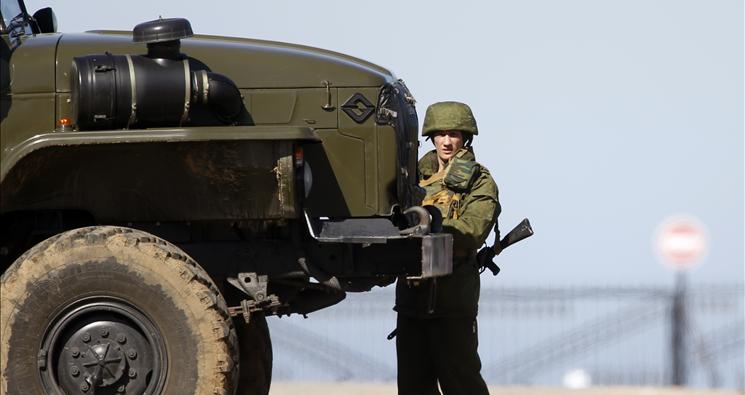The Czar Strikes Back? Russian Armor in Crimea
With some parts of the Russian security state moving into Crimea, thoughtful people are saying that Putin is “intent on refighting the Cold War,” but I join others in thinking something much older is in play — the great power politics of the czars, including the balance-of-power jockeying that dominated much of the19th and early 20th centuries before the rise of the totalitarian systems of fascism and Communism. Putin isn’t seeking a world Marxist revolution but instead is seeking to maximize Russian power and influence in a manner more reminiscent of the Great Game.
Our historical memory cannot and must not stop at World War II. There were centuries of international conflicts before that great clash and the resulting drive to create, as Paul Rahe describes, an international system that makes war “counter-productive.” In this new system:
The name of the game is commerce. The weapon we deploy is simple and powerful. Those who agree to leave their neighbors alone and to allow freedom of commerce can profit from a a world-wide economic system that will enrich everyone. Those who buck that system and opt for imperial ventures will be contained, weakened, and defeated.
But what if the Western powers no longer have the will to contain, weaken, and defeat those who seek conquest over commerce? What if Putin is reading an entirely different playbook, one that tells him there’s no way France and Great Britain (among others) have the will or capability they once had to thwart Russian imperial ambitions? He of course believes the United States will not respond meaningfully.
Putin knows that power is not exclusively contained in economic potential, that human will matters, and right now he looks at a West that seems — to all outside appearances — to be completely flummoxed by a military power that utterly disregards the international “norms” they’ve so carefully cultivated yet have neither the intent nor power to enforce.
